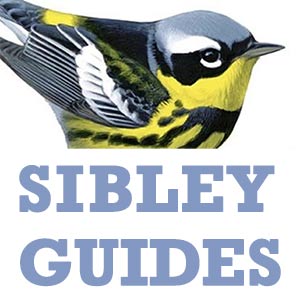Revised 8 Apr 2008 –
Do something: Write or call Congress. See the No Texas Border Wall campaign and their suggestions for action with several petitions to sign and instructions for contacting government officials. Defenders of Wildlife has a handy form here for writing to your representative.
The proposed border wall (1) from Texas to California has been hotly debated, but birders should be aware that aside from local residents (2), as a group, we will be among those most strongly affected by it. Problems include:
- the destruction and fragmentation of habitat – imagine building a four-lane highway through the area (3).
- current plans call for the wall to be erected between US birders and several of our most popular birding sites – such as the National Audubon Society’s Sabal Palm Grove, The Nature Conservancy’s Southmost Preserve, and parts of the Lower Rio Grande Valley National Wildlife Refuge – relegating those places to the Mexican side of the fence, with no plans for visitor access (4)
- over 30 environmental laws were summarily waived on 1 Apr 2008 (no joke), so that construction of hundreds of miles of border fence would not be slowed down by the nuisance of considering endangered species, clean water, Native American burial sites, etc. (5)
Border security is important, but for whatever help this wall will provide (6), the need for secure borders should not trample environmental laws. We must be able to increase security while still maintaining the natural and cultural heritage of the border region.
Notes:
1) In the subtleties of language, calling this a fence implies a neighborly sort of boundary marker. It is really a wall, actually two walls – at least 15 feet high, solid metal and concrete, with a road on either side (see photos here).
2) Local residents are overwhelmingly opposed to the wall. An article in the Texas Observer with the local viewpoint and other issues is here
(3) from a Houston Chronicle article here “Federal wildlife officials said they are concerned the waiver of the Endangered Species Act and other environmental laws will threaten the survival of a number of animals by allowing the fence to be built through a 90,000-acre wildlife corridor they spent $100 million assembling in South Texas.”
(4) A refuge official says that over two-thirds of National Wildlife refuge land in the Valley will be negatively impacted, either directly or indirectly. Not to mention that access to the river will be limited, and a number of homes, businesses, and historic sites will be on the other side of the planned wall.
(5) Defenders of Wildlife press release here
(6) only 70 miles of wall are planned along 300 miles of the Rio Grande. Eagle Pass Mayor Chad Foster told the Houston Chronicle here “I’m just a yahoo from Eagle Pass, Texas, but this is just the absolute height of folly”
More info:
8 Apr New York Times story about the legal issues of the waiver is here
A detailed 4 Apr story in Newsweek is here
The 7 Apr New York Times story about the issue here
A Houston Chronicle story is here
Defenders of Wildlife press release here and lots more in the “Related Information” sidebar


A link to the border fence EIS is here. This is to the lower Rio Grande section. One can click on links to other segments, e.g. the Del Rio segment or San Diego etc., to read more information.
Appendix F (14.59 MB pdf) in the above link provides maps where the fence is planned. It shows that Sabal Palm is entirely south of the fence. (I guess that means ocellots stop there too!) The link above only covers the area from Roma downstream, so nothing about the entire Falcon Lake area, etc.
After issuing the waiver DHS told the Texas Border coalition that no Final Environmental Impact Statement would be released. In the Draft EIS it was pointed out that if construction occurred between March and August nests would be destroyed, which would be a potential violation of the Migratory Bid Treaty Act. Elsewhere in the Draft EIS it stated that construction would begin in the spring and continue until December. Chertoff can now being construction within 15 days of the issuance of the waiver, so the bulldozers can start up on April 16, and the Migratory Bird Treaty Act is now off the table.
It is critical that everyone who cares about this issue write their member of Congress and express their outrage at Chertoff’s suspension of the rule of law. They are hearing from the minutemen and grassfire, and since the squeaky wheel gets the grease, they are setting the agenda. We need to demand that section 102 of Real ID is repealed, existing waivers are voided, and an immediate moratorium on border wall construction is put in place.
Unfortunately, our Congress added a clause to the act that authorizes the wall, that construction of the wall is EXEMPT FROM FEDERAL COURTS. The only court in the land that can hear any issues on the wall is the supreme court.
So Chertoff can pretty much do as he pleases.
There is some justification that congress cannot give away judicial powers. But it will take a supreme court decision to stop the wall. By then it will most likely be built.